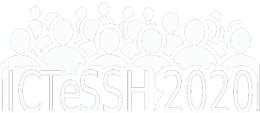In 2015 the United Nation’s General Assembly agreed on the 2030 Sustainability Agenda including 17 Sustainable Development Goals1. The targets and indicators associated with these goals address the most pressing environmental, social and economic challenges humanity faces. The global science community has a crucial role in achieving these goals, by informing policy, and driving positive change through research, education and social engagement.
Given the importance research institutions play in the 2030 Agenda, there is a clear need to map their contribution to the SDGs, to inform strategy and develop collaborations. Elsevier’s data science teams have built a set of search queries based on Scopus2, one of the largest abstract and citation database of peer-reviewed literature, with keywords reflecting the specific targets and indicators of the various SDGs. The queries were reviewed by subject experts and were introduced as pre-defined research areas in Elsevier’s web-based analytics tool, SciVal3, providing consistency across SDG related bibliometric analyses. The queries and the related documentation on how they were built, are free to download from Mendeley4 , and to further improve the queries, a crowdsourcing tool was launched on the RELX SDG Resource Center5 where experts can validate the relevance of scientific literature to the various SDGs.
In this talk, the speaker will present how these queries were used supporting Aalborg University’s SDG related strategy, and the work that also led to their recent success in the THE Impact Rankings6. We will go through the important indicators of Aalborg’s SDG related scholarly contribution, and how the relevant research landscape was mapped in SDG 4 Quality Education, while acknowledging the challenges of bibliometrics in SSH.
1. United Nations. United nations general assembly. https://www.un.org/ga/search/view_doc.asp?symbol=A/RES/70/1&Lang=E (2015) doi:10.1163/157180910X12665776638740.
2. Baas, J., Schotten, M., Plume, A., Côté, G. & Karimi, R. Scopus as a curated, high-quality bibliometric data source for academic research in quantitative science studies. Quantitative Science Studies 1, 377–386 (2020).
3. https://www.scival.com/sdg
4. Jayabalasingham,
Bamini; Boverhof, Roy; Agnew, Kevin; Klein, Lisette (2019), “Identifying
research supporting the United Nations Sustainable Development Goals”,
Mendeley Data, v1http://dx.doi.org/10.17632/87txkw7khs.1
5. https://sdgresources.relx.com/match-research-to-sdgs
6. https://www.timeshighereducation.com/world-university-rankings/aalborg-university


















